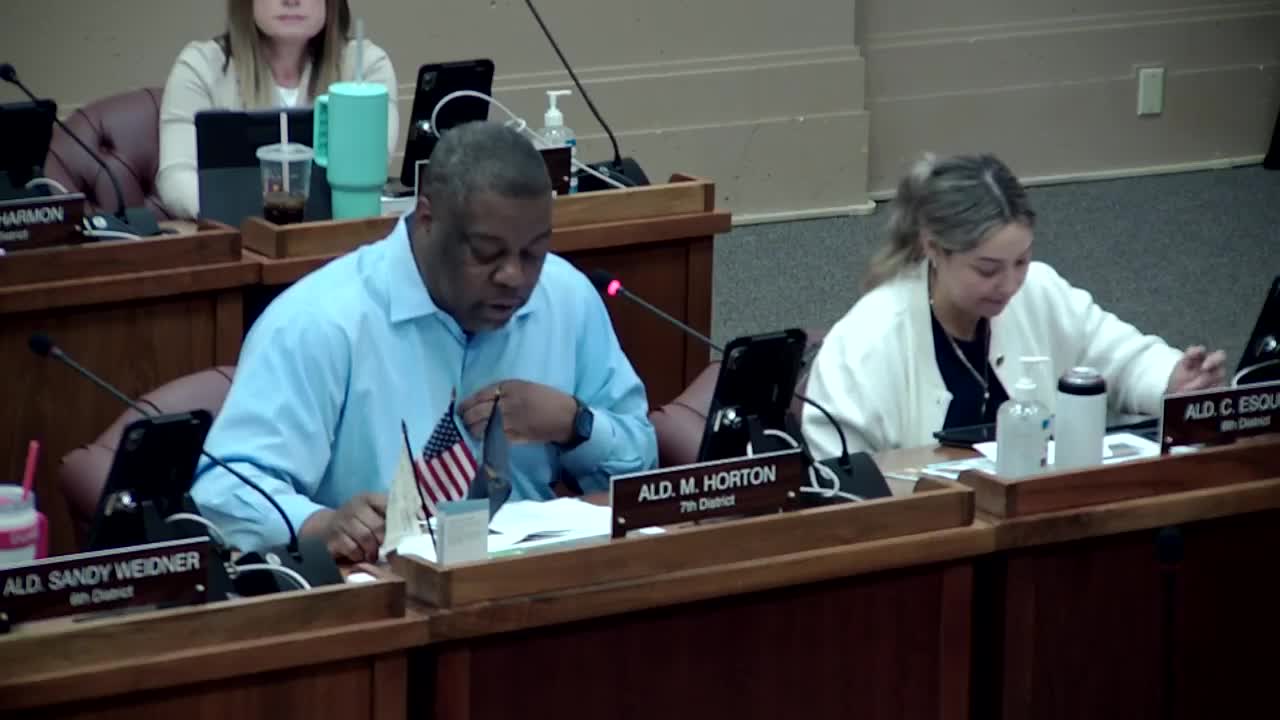Council advances financing and land steps for Lincoln King Community Center and clinic
Get AI-powered insights, summaries, and transcripts
Subscribe
Summary
The Racine Common Council approved professional services and financing steps on March 4 as the city moves forward with the Lincoln King Community Center and Clinic project, including a contract with Baker Tilly and a short-term $17 million promissory note sale to bridge construction costs.
The Racine Common Council on March 4 approved several financing and property actions to advance the Lincoln King Community Center and Clinic, authorizing consultants and short-term borrowing as the project proceeds through new market tax credit financing.
Councilors approved entering into professional services agreements with Baker Tilly Advisory Group LP to identify and claim tax credits related to the project. Doug Baldserra of Baker Tilly told council the company would “help maximize the credits” and said historically projects that meet IRS beginning-construction requirements can lock in tax credits even if future tax law changes occur. Baldserra said, “The tax credits are actually changed by an act of Congress,” and described protections and contract termination provisions if federal law changed.
The council also approved a resolution authorizing the issuance of general obligation promissory notes to raise up to $17 million as short-term bridge financing for construction costs on the Lincoln King project. City staff said the borrowing is intended to be prepaid or refinanced as grant and tax-credit proceeds arrive. The council voted to approve the borrowing; the chair later reported the motion carried 8 to 4.
Councilors debated the level of grant reliance behind the plan and asked about contingency if expected grants do not materialize. A finance advisor told council the $17 million could be amortized over a longer term and repaid from the debt service tax levy if necessary.
Separately, the council approved several property-related steps tied to the project: a transfer of a subdivided parcel (referred to as “Lot 1”) to the nonprofit entity that will hold the project’s New Markets Tax Credit financing vehicle; the formal initiation of discontinuing a portion of West Street (a resolution to start the public-notice/public-hearing process); and a street-privilege/encroachment authorization to allow planned plaza and building elements to occupy the right-of-way while the discontinuance process proceeds. City staff explained the street discontinuance requires a public hearing 40 days after the council’s initiating resolution and notice to nearby property owners.
Why it matters: The Lincoln King Community Center and Clinic is a multi-million-dollar community facility. Council approvals of consultants, short-term borrowing and property transfers were described by staff as necessary steps to satisfy New Markets Tax Credit investors and keep the construction schedule on track.
Council action and next steps: Baker Tilly’s contract and the promissory-note authorization were approved at the March 4 meeting. The West Street discontinuance resolution starts a 40-day public-notice period and triggers a public hearing before final action. The street-privilege authorization was adopted to prevent construction delay while the formal discontinuance proceeds. City staff said the New Markets Tax Credit investors require those ownership and right-of-way steps before closing.
Speakers quoted in this story spoke at the March 4 meeting. Doug Baldserra is listed on the agenda as representing Baker Tilly; Brad (a financial advisor from Baird) provided updated bond pricing; and the city’s finance director and development staff presented the project materials. The council’s vote counts on the borrowing and other items were recorded in the meeting minutes or announced from the dais.
Ending: The project remains contingent on the timely arrival of grants and tax-credit financing; city staff said the short-term borrowing can be prepaid if those funds come through and otherwise would be refinanced into longer-term debt.
